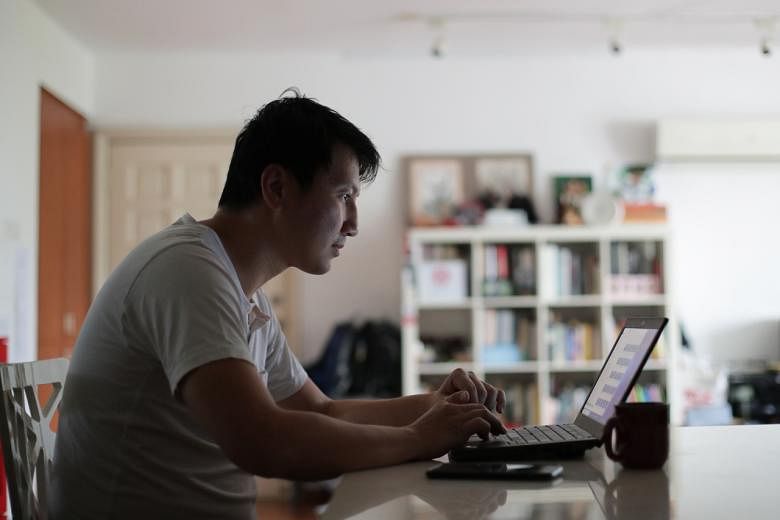SINGAPORE - Internet usage in Singapore remains well within network operators' capacity, despite an increase in traffic since the start of the circuit breaker period due to telecommuting and home-based learning, said Communications and Information Minister S. Iswaran on Tuesday (May 5).
He noted that each operator has a buffer of at least 30 per cent spare capacity to handle the spike in fixed broadband traffic and daytime usage.
"Some users may have experienced a longer wait when accessing certain websites or buffering when viewing online content. One reason for this is the usage pattern in the home rather than a network capacity constraint per se," he said.
He also reiterated that two recent disruptions were not caused by network capacity issues.
Mr Iswaran was replying to Mr Liang Eng Hwa (Holland-Bukit Timah GRC), who asked if there have been network capacity and speed issues during the circuit breaker period.
According to Internet service providers here, network traffic surged by as much as 60 per cent in March, when a significant proportion of the workforce began working from home.
Mr Liang drew attention to two Internet service disruptions which affected thousands of StarHub subscribers on April 15, when the circuit breaker had already kicked in.
Mr Iswaran said: "Based on the information that is available from StarHub, the two recent disruptions to its fibre broadband service were caused by network equipment failure and a domain name server issue respectively.
"Having said that, IMDA (Infocomm Media Development Authority) is investigating the matter and once its investigation comes to a close, (we will) draw the appropriate conclusions and take the necessary steps."
The importance of having a robust and resilient network infrastructure is accentuated in times like the Covid-19 outbreak, Mr Iswaran added.
"IMDA's approach has been to design the regulations so that our telcos are incentivised to plan and design an infocomm infrastructure that is robust and resilient.
"Second, (they are incentivised) to build into this infrastructure backups and diversity so that if there is a need... they will be able to recover swiftly."
Mr Iswaran also underscored the importance of investing in a resilient digital infrastructure last week, when Singtel and a joint venture between StarHub and M1 won the rights to build the Republic's two nationwide 5G networks.
Under IMDA's requirements, the telcos will have to provide 5G mobile network coverage to at least half of Singapore by end-2022, and scale up to nationwide coverage by 2025.












